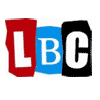News & Events
 |
Major Funding Preserves Radio News Archive |
A major project by Bournemouth University’s Media School to digitise and catalogue the most important radio news archive in the UK outside of the BBC has been given funding totalling over £750,000.
The LBC/Independent Radio News (IRN) Digitisation Project, co-ordinated by the University’s Centre for Broadcasting History, will preserve for academic use the unique news and current affairs audio archive owned by LBC Radio Ltd, part of the Chrysalis Radio Group.
The Bournemouth project joins 15 new and six established digitisation projects to be funded by JISC (Joint Information Systems Committee). The JISC programme represents a total investment of nearly £22m in the digitisation of high-quality online content in a wide range of media, including sound, film, images, journals, newspapers, maps, theses, pamphlets and cartoons.
The archive, currently deposited in vaults at Bournemouth University, comprises more than 7,000 audio tapes containing material from the very beginnings of commercial radio in Britain encompassing the joint archives of LBC and IRN (Independent Radio News).
 |
"The archive, currently deposited in vaults at Bournemouth University, comprises more than 7,000 audio tapes" |
The digitisation of the quarter-inch tape will initially cover the period from 1973 (when LBC/IRN began broadcasting) to 1995 (from which time digital storage at source was introduced). Examples of material to be preserved are:
- The live reporting of UK election results from 5 general elections
- Extraordinary material relating to the conduct of the Falklands War
- Significant material relating to the ending of apartheid in South Africa, including State President PW Bothas speech to the South African Parliament, in which he announced the ending of apartheid.
Seán Street, Professor of Radio in the Media School, and Director of the Centre for Broadcasting History Research, is understandably excited by the project.
“This collection is simply the most important commercial radio archive in the UK, and provides a unique witness to the history of the latter part of the 20 th century,” Professor Street enthuses.
“The Centre is delighted to be entrusted with this highly significant project. We will be working with our colleagues in the BUFVC (The British Universities Film & Video Council) and with other stakeholders to enable the secure preservation and educational usage of the collection for the future. It is hard to over-estimate the importance of this project in terms of UK media history.”
 |
"The Centre is delighted to be entrusted with this highly significant project." |
David Lloyd, Managing Director of LBC Radio commented, “LBC was the first commercial radio brand, and we are pleased that this major project preserves its unique sound heritage for generations to come.”
Stuart Dempster, manager of the JISC-supported £22m digitisation programme said: “Sound has, up to now, been an often neglected resource in education and resource, just as radio has sometimes been a neglected medium. This project will challenge those assumptions, providing a rich and unique resource reflecting major political events in the UK and beyond, and giving us a vivid picture of history in the making.”
John Perkins, Managing Director of IRN, commented on the new wave of news broadcasting represented by the material: “LBC and IRN broke the mould so far as news and speech broadcasting in the UK was concerned when they launched back in the early 1970s. Many of the formats and devices we now take for granted on both the BBC and commercial radio were pioneered by these two organisations and I am delighted that these will now be preserved for future generations.”
 |
"LBC and IRN broke the mould so far as news and speech broadcasting in the UK was concerned when they launched back in the early 1970s" |
Charlie Rose, who as LBC/IRN Deputy Head of News Information and Archivist 1980 – 1996, has strong personal reasons to be delighted by the successful bid: “As part of the team that’s campaigned to save the collection, I’m very pleased that this grant makes the most important commercial radio archive in the UK – finally accessible to all. Media students will be able to listen to exceptional examples of radio journalism, ground-breaking production techniques and unique audio history of the period.”
Paul Brown, CBE, chairman of The Radio Centre, agrees: “The grant will allow proper academic assessment of the value of non-publicly funded, stylistically different, easily digestible news provision to UK radio listeners over the past 30 years.”
Professor Street recognises that team work is crucial to the success of the project: “my sincere thanks go to colleagues at Chrysalis, owners of LBC and the Archive, for entrusting the Centre for Broadcasting History Research with this jewel in the crown of independent radio news and current affairs. Also to Independent Radio News, with whom I have been in contact for a number of years over the future of the Archive, and of course to JISC, for funding the project. We will commence the digitisation process in March 2007, and the project will be completed by March 2009.”
Related Courses





